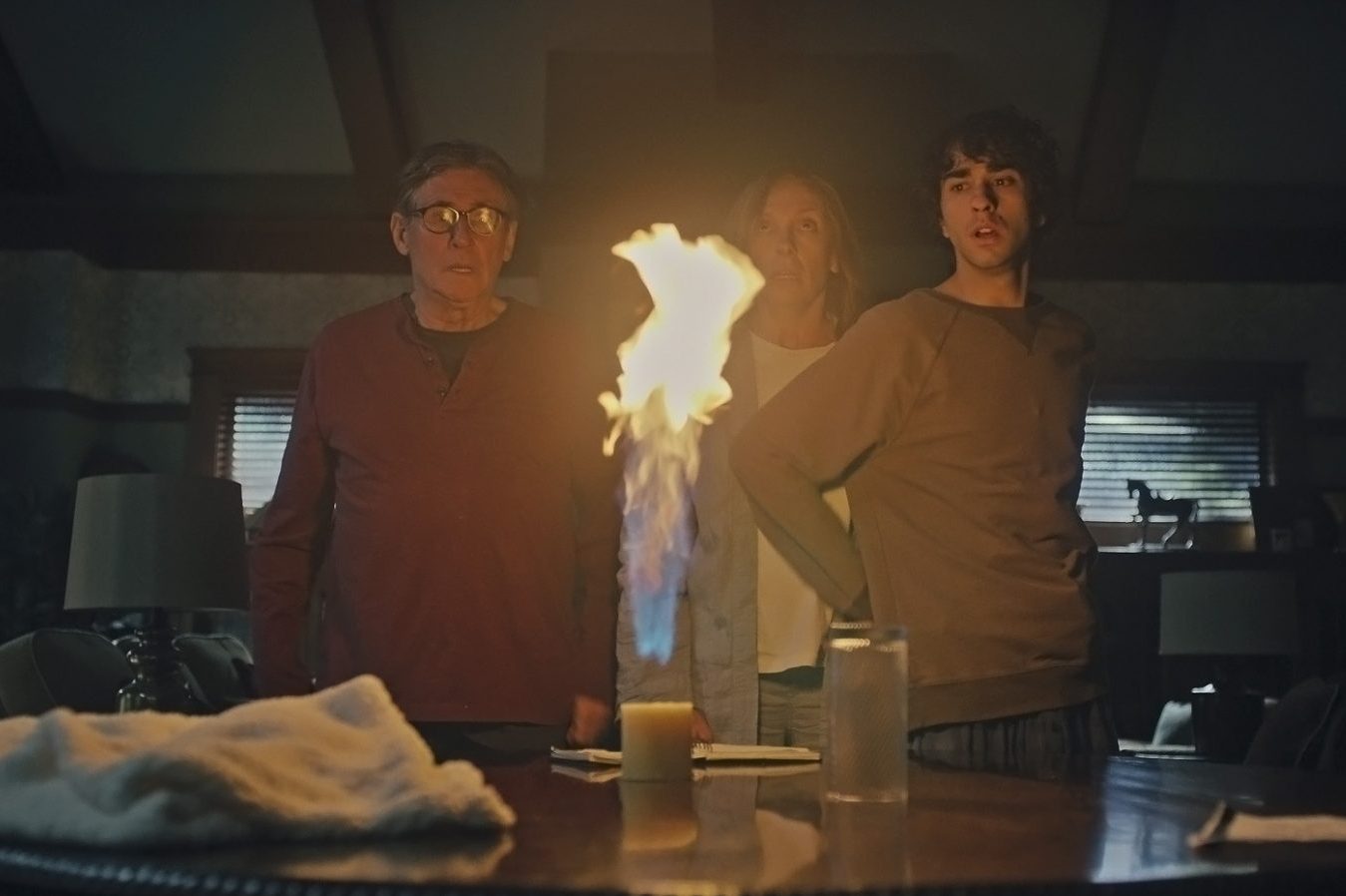“Uncut Gems,” “Midsommar,” “Lady Bird,” “Moonlight,” “Ramy,” “Euphoria” and more. Any fan of contemporary film will likely have heard of or seen each of these critically acclaimed titles. Yet, these are just a few of the features that independent entertainment company A24 flaunts on the website bearing its name. The list doesn’t end there. Beginning with “Spring Breakers” and “The Bling Ring” back in 2013 and earning a lasting reputation with the release of “Ex Machina” in 2015, A24 has garnered enough praise from audiences to warrant its still-increasing annual film output.
From a humble five releases in 2013 to 21 projects in 2019, A24 has entered the upper echelon of film studios, in large part due to a cult-following that stems from the atypical focuses of its earlier projects. Whether covering youthful rebellion, the occult, intense against-the-clock scenarios or identities seldom at the foreground of Hollywood, A24 films appeal to a range of audiences because of their off-kilter concepts. The themes, tones and settings change drastically, yet A24 films remain decidedly A24. So, what exactly defines a film within this sub-genre of A24, and what distinguishes the studio’s output from standard Hollywood successes?
Not everybody loves Marvel movies, but they are widely agreeable and deliberately so. Disney depends on the formulaic nature of the Marvel Cinematic Universe to secure profits on their costly investments, appeal to a broad audience and maintain a degree of continuity across an increasingly connected series. The qualities shared across Marvel, and major studio projects, far outweigh the ways in which they vary or defy audiences’ expectations. A viewer has a firm idea of what they’re getting with their movie ticket each time a new “Avengers” or “Spider-Man” project releases.
For that reason, it takes a legitimate disaster of a film for a Marvel property to fall below the certified fresh threshold on Rotten Tomatoes, but it also takes a bonafide classic or unconventional approach to be regarded as a genuinely quality film. Regardless of how breathtaking and cinematic any given Marvel film will be, the general reliance on visual spectacle is the primary difference between global blockbusters and the output of independent studios like A24. More often than not, Disney and the MCU invite viewers to ogle instead of interpret. On the other hand, A24 films demand viewers do the opposite.
Even as A24 characters grapple with forces far beyond their humble capabilities, the focuses remain unmistakably human. By grounding each film with the characters’ perspectives and relationships, instead of relying on the spectacle of their crises and successes, each movie lets carnal emotion and humanity define the stories. The robots, witches, demons, mob threats, political phenomena and otherworldly settings, all present in large cinematic properties like Marvel, are merely sparks to motivate each characters’ arc.
The aforementioned “Ex Machina” serves as a bit of a thesis for A24 in this regard. By making an AI and the Turing test central to its premise, the plot inherently begs the question of what it means to be human. The exploration of emotion, personal experiences and relationships with others motivate the action of “Ex Machina” and A24 films as a whole. The concepts make us question ourselves and the contemporary culture audiences return to once the screen turns black.
Similarly, terrorizing a home specifically because of the family that inhabits it in “Hereditary” forces the characters to explore their family dynamics amid crisis. As the setting deteriorates around them, the characters are forced to either mend or succumb to the state of their lives with a newfound urgency. And, just as the characters are inheritors of the chaos, the themes and dynamics that surface invite viewers to reflect on their own.
The same can be said for “The Lighthouse,” which locks two strange men in a chaotic lighthouse to explore themselves and the many flawed aspects of humanity they exhibit in near isolation. The setting and external threats are mere motivators for the internal exploration and possible growth that audiences come to see, an approach seldom found in cinema’s commercial heavyweights. Even the settings of all three strictly place the characters in one place for the vast majority of the films, forcing them to deal with their dire circumstances and each other. When faced with the worst, the best or worst human qualities of A24 characters are inevitably brought out, inciting audiences to question, reflect and relish in the viewing experience.
Such glimpses into humanity don’t always have to coincide with existential threats or the paranormal, however, as films like “Moonlight,” “Lady Bird” and “Minari” have proven. These projects explore marginalized identities within a mix of societies. One’s subjectivity collides with notions of the American dream, the ever-present family dynamics and the passage of time. The results are thought-provoking studies of what it means to be. To be Black and gay, to be an independent thinker and feminist in a restrictive society, to be a Korean immigrant and father facing financial pressures in the American South and, above all, to be human.
A24 character studies like these reveal what connects people despite their different circumstances and brings personal stories to the public eye. However humble the settings and scale of these stories prove in comparison to the sweeping heroics and galactic battles of Hollywood epics, A24 has established that their approach can have just as profound an effect.
Though they might sometimes underwhelm at the box office, A24 films have cultivated a fanbase whose loyalty lies with a studio instead of a property. In fact, the A24 following has become a culture within itself. Multiple social media accounts are dedicated solely to the studio and its projects, while existing film accounts exalt A24 almost daily and a quick Google search retrieves articles like “19 Hilarious Tweets Only True A24 Fans Will Understand” and “How A24 Became the Coolest Mini-Major on Earth.”
Like Marvel, the fans have established a connectedness and subsequent fandom between A24 properties. Though their connection isn’t nearly as blatant or advisable as those in Marvel’s Cinematic Universe, A24 films have endeared themselves to critics and audiences to a comparable extent. Of the 85 A24 released to date, 62 of them are certified fresh on Rotten Tomatoes. This impressive track record, and the 25 Academy Award nominations the studio boasted as of 2019, enables A24 to take unparalleled risks with its subjects that Marvel can’t afford to.
Few studios have churned out modern classics quite like A24, and the sheer range of their subjects ensures that there’s something meaningful for every viewer. Even the A24 films that a viewer expects won’t be for them consistently prove them wrong through the studio’s continued emphasis on humanity and sympathy for the characters. Their flaws, identities and circumstances connect an audience to the screen in ways that CGI showcases neglect, an increasingly rare phenomenon in today’s theaters. But A24 carries this torch like no other and, luckily, will bring the craft of storytelling to the big screen with their imperfectly resonant characters for years to come.

















